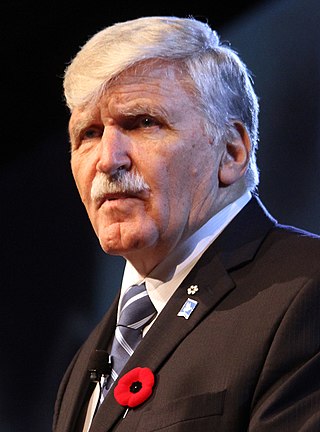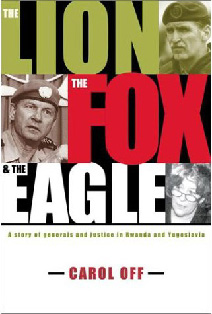The Pat Lowther Memorial Award is an annual Canadian literary award presented by the League of Canadian Poets to the year's best book of poetry by a Canadian woman. The award was established in 1980 to honour poet Pat Lowther, who was murdered by her husband in 1975. Each winner receives an honorarium of $1000.
The Gerald Lampert Memorial Award is an annual literary award presented by the League of Canadian Poets to the best volume of poetry published by a first-time poet. It is presented in honour of poetry promoter Gerald Lampert. Each winner receives an honorarium of $1000.
The Stephen Leacock Memorial Medal for Humour, also known as the Stephen Leacock Medal for Humour or just the Leacock Medal, is an annual Canadian literary award presented for the best book of humour written in English by a Canadian writer, published or self-published in the previous year. The silver medal, designed by sculptor Emanuel Hahn, is a tribute to well-known Canadian humorist Stephen Leacock (1869–1944) and is accompanied by a cash prize of $25,000 (CAD). It is presented in the late spring or early summer each year, during a banquet ceremony in or near Leacock’s hometown of Orillia, Ontario.

Roméo Antonius Dallaire is a retired Canadian politician and military officer who was a senator from Quebec from 2005 to 2014, and a lieutenant-general in the Canadian Armed Forces. He notably was the force commander of UNAMIR, the ill-fated United Nations peacekeeping force for Rwanda between 1993 and 1994, and for trying to stop the genocide that was being waged by Hutu extremists against Tutsis. Dallaire is a Senior Fellow at the Montreal Institute for Genocide and Human Rights Studies (MIGS) and co-director of the MIGS Will to Intervene Project.
No Crystal Stair is a 1997 novel by Canadian author Mairuth Sarsfield. It is a coming-of-age story set in the Little Burgundy district of Montreal during the 1940s.
Anita Rau Badami is a Canadian writer of Indian descent.

The Lion, the Fox & the Eagle: A Story of Generals and Justice in Rwanda and Yugoslavia is a non-fiction book by Canadian journalist Carol Off. The hardcover edition was published in November 2000 by Random House Canada. The writing was favourably received and the book was short-listed for the Shaughnessy Cohen Award for Political Writing. With numerous interviews and extensive research behind it, the book presents biographies of three Canadians in United Nations roles in the 1990s: Roméo Dallaire, Lewis MacKenzie, and Louise Arbour.
The J.M. Abraham Poetry Award, formerly known as the Atlantic Poetry Prize, is a Canadian literary award, presented annually by the Atlantic Book Awards & Festival, to the best work of poetry published by a writer from the Atlantic provinces.
Michael Dennis McQuay was an American science fiction writer. His series include Mathew Swain, Ramon and Morgan, Executioner, and SuperBolan. The Book of Justice series he wrote as Jack Arnett. He also wrote the second of the Isaac Asimov's Robot City novels. His non-series novel Memories was nominated for a Philip K. Dick Award in 1987.

Claudia Dey is a Canadian writer, based out of Toronto.
Kim Echlin is a Canadian novelist, translator, editor and teacher. She has a PhD in English literature for a thesis about the translation of the Ojibway Nanabush myths. Echlin has worked for CBC Television and several universities. She currently works as a creative writing instructor at the University of Toronto School for Continuing Studies. Her 2009 novel, The Disappeared, featured on the shortlist for the 2009 Scotiabank Giller Prize.

Yann Martel, is a Canadian author who wrote the Man Booker Prize–winning novel Life of Pi, an international bestseller published in more than 50 territories. It has sold more than 12 million copies worldwide and spent more than a year on the bestseller lists of the New York Times and The Globe and Mail, among many other best-selling lists. Life of Pi was adapted for a movie directed by Ang Lee, garnering four Oscars including Best Director and winning the Golden Globe Award for Best Original Score.
Danila Botha is a Canadian author and novelist. She has published two short story collections, with a third to be published in 2024 and two novels, with the second to be published in 2025.
Claudia Casper is a Canadian writer. She is best known for her bestseller novel The Reconstruction, about a woman who constructs a life-sized model of the hominid Lucy for a museum diorama while trying to recreate herself. Her third novel, The Mercy Journals, written as the journals of a soldier suffering PTSD in the year 2047, won the 2016 Philip K. Dick Award for distinguished Science fiction.

Esi Edugyan is a Canadian novelist. She has twice won the Giller Prize, for her novels Half-Blood Blues (2011) and Washington Black (2018).
The Raymond Souster Award is a Canadian literary award, presented by the League of Canadian Poets to a book judged as the best work of poetry by a Canadian poet in the previous year.
Susin Nielsen is a Canadian author for children, adolescents and young adults. She received the 2012 Governor General's Award for English-language children's literature and the 2013 Canadian Library Association Book of the Year for Children Award for her young adult novel The Reluctant Journal of Henry K. Larsen, which deals with the aftermath of a school shooting.

Jessica Dee Humphreys is a Canadian writer specializing in international humanitarian, military, and children's issues.

Butter Honey Pig Bread is Francesca Ekwuyasi's debut novel, published on September 3, 2020 by Arsenal Pulp Press.
Audrey Schulman is an American author of literary and speculative fiction.









